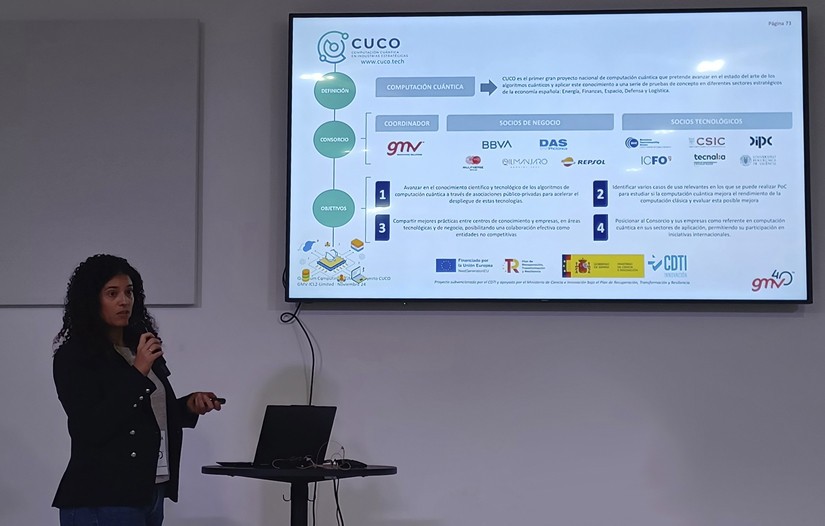Quantum computing, key to transforming urban mobility and sustainable logistics

Advanced management systems, more complete and customized route planners, and the digitalization and control of loading and unloading zones in cities were some of the key ideas for sustainable and efficient last-mile mobility presented at ALIA’s Living Lab. This forum, organized for the second consecutive year by the Logistics Cluster of Aragon (ALIA) in collaboration with the Technological Institute of Aragon (ITA), took place on Black Friday week, one of the most critical periods for the logistics sector. “At the Living Lab, we celebrate breakthroughs and technologies that help to improve processes, cut costs, and reduce the carbon footprint of a sector heavily conditioned by regulations,” said Angel Gil, manager of ALIA, in his opening speech.
In this context, Ana María Sánchez Montero, head of GMV’s Quantum Computing Section, participated in the “Pitch for innovation in urban mobility” session to explore the impact of quantum computing in the logistics sector. She focused on how this technology could transform key areas such as route planning and the management of loading and unloading zones, enabling a qualitative leap towards smarter and more sustainable cities.
Quantum computing, thanks to its ability to process large volumes of data and solve complex optimization problems in real time, is emerging as an essential tool for tackling the current challenges of urban logistics. From creating more efficient routes to reducing delivery times and minimizing the carbon footprint of processes, this technology promises a radical transformation in mobility and distribution systems. It also allows for dynamic management of loading and unloading zones, adapting to variable conditions such as traffic and demand.
Sánchez Montero emphasized GMV’s pioneering role in research and development of quantum computing applications through initiatives such as the CUCO project, which has received a grant from the CDTI and is backed by the Spanish Ministry of Science and Innovation through the Recovery, Transformation and Resilience Plan, which is exploring its use in strategic sectors.